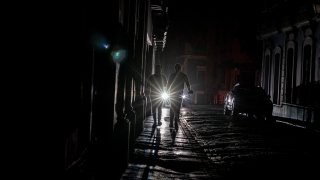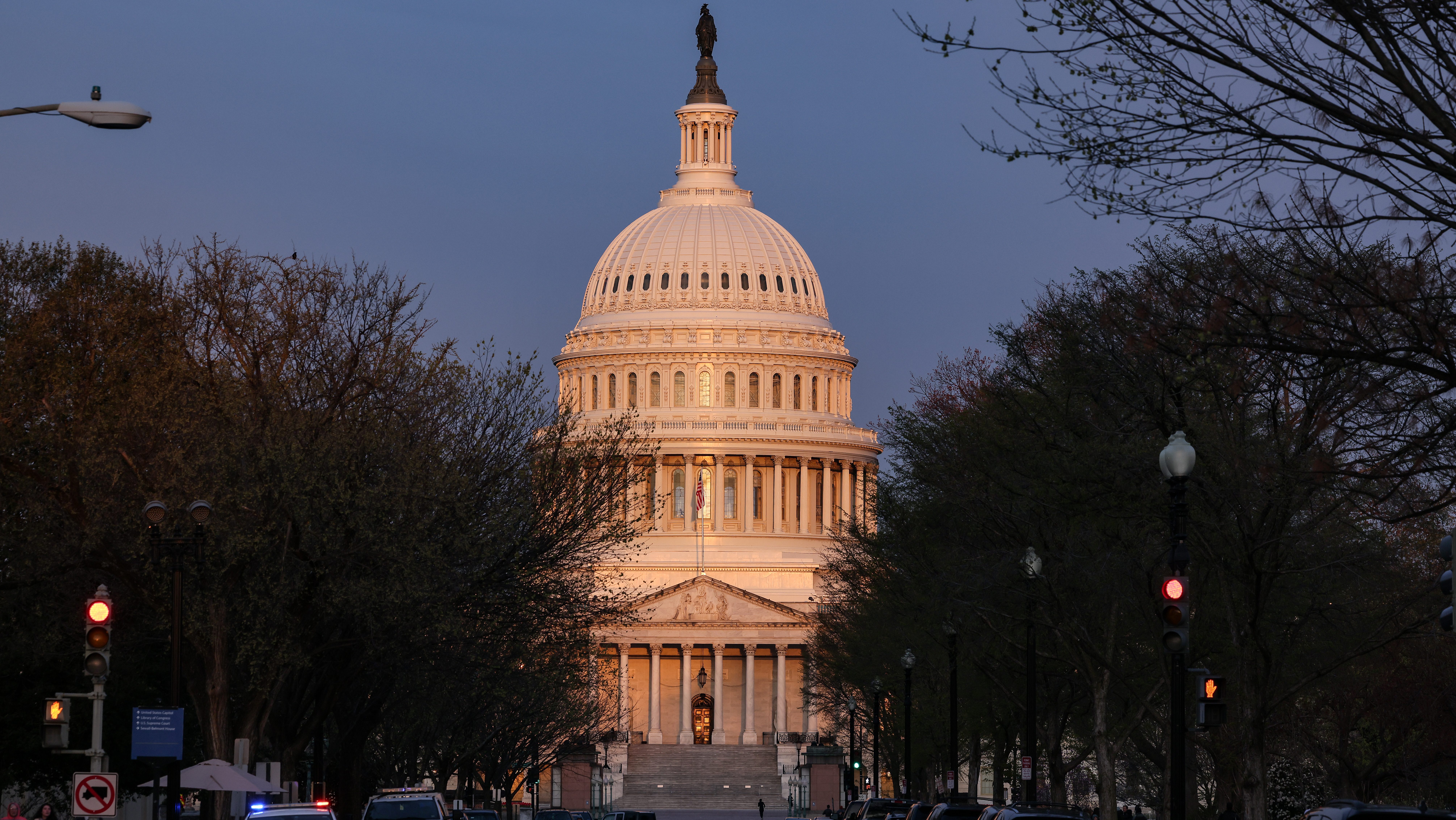
More than a million customers in Puerto Rico remained without electricity on Thursday after a fire at a main power plant caused the biggest blackout so far this year across the U.S. territory, forcing it to cancel classes and shutter government offices.
The blackout also left some 170,000 customers without water and snarled traffic across the island of 3.2 million people, where the roar of generators and smell of diesel filled the air. Those who could not afford generators and have medical conditions such as diabetes, which depends on refrigerated insulin, worried about how much longer they’d be without power.
“We urge you to stay home if possible,” said Puerto Rico Justice Secretary Domingo Emanuelli, who is serving as interim governor since Gov. Pedro Pierluisi is on an official trip in Spain.
Get New England news, weather forecasts and entertainment stories to your inbox. Sign up for NECN newsletters.
As of late Thursday afternoon, crews had restored power to some 500,000 customers out of nearly 1.5 million.
Officials in at least one city distributed food to hundreds of elderly people as well as ice to those whose medication must be kept cool.
Long lines formed at some gas stations as people sought fuel for generators. Others tried to charge their cellphones at businesses in scenes reminiscent of the aftermath of Hurricane Maria, which struck as a Category 4 storm in 2017.
U.S. & World
Officials in at least one city distributed food to hundreds of elderly people as well as ice to those whose medication must be kept cool.
“This is horrible,” said Luisa Rosado, a mother of two who lives in the San Juan neighborhood of Río Piedras.
She said she and her husband had sacrificed their savings to install a solar electricity system at their home after Hurricane Maria, which left them with at least partial power following the blackout.
She said her neighbors had been outraged by recent increases in power bills, which were already higher than in most U.S. states.
“To increase bills when you don’t provide a perfect service ... the level of impunity is absurd,” Rosado said.
Luma, the company that took over transmission and distribution from Puerto Rico’s Electric Power Authority last year, said the blackout could have been caused by a circuit-breaker failure at the Costa Sur generation plant — one of four main plants on the island.
“The system is being restored little by little,” said Kevin Acevedo, a vice president of Luma, adding that the company is trying to complete the work within 24 hours. “The people of Puerto Rico have to understand that it’s a system with a lot of years. Bringing back Puerto Rico’s system is a delicate and complicated process.”
Luma said the exact cause of the interruption is unknown.
“It’s going to require an exhaustive investigation,” Acevedo said, adding that that the equipment whose failure sparked the fire had been properly maintained.
Officials said at least three generation units were back online by Thursday, with crews working to restore more.
The outage occurred two months before the Atlantic hurricane season starts, worrying many about the condition of Puerto Rico’s electrical grid.
“Yes, the system is fragile, no one is denying that, but we’re prepared,” Acevedo said.
The U.S. Federal Emergency Management Agency said late Thursday that it approved nearly $9.5B to Puerto Rico's power company in September 2020 to rebuild the island's electrical grid, but that it has yet to receive any transmission and distribution projects for evaluation and approval of construction funds.
Police officers were stationed at main intersections to help direct traffic on Thursday while health officials checked in at hospitals to ensure generators were still running.
The outage further enraged Puerto Ricans already frustrated with an electricity system razed by Hurricane Maria in 2017. Emergency repairs were made at the time, but reconstruction efforts have not yet started, and power company officials blame aging, ill-maintained infrastructure for the ongoing outages.
A series of strong earthquakes that struck southern Puerto Rico where the Costa Sur plant is located also had damaged it.
The Electric Power Authority also is trying to restructure $9 billion worth of public debt to emerge from a lengthy bankruptcy. The company has struggled for decades with corruption, mismanagement and a lack of maintenance.
In June last year, a large fire at a substation in the capital of San Juan left hundreds of thousands without power. Another fire at a power plant in September 2016 sparked an island-wide blackout.



